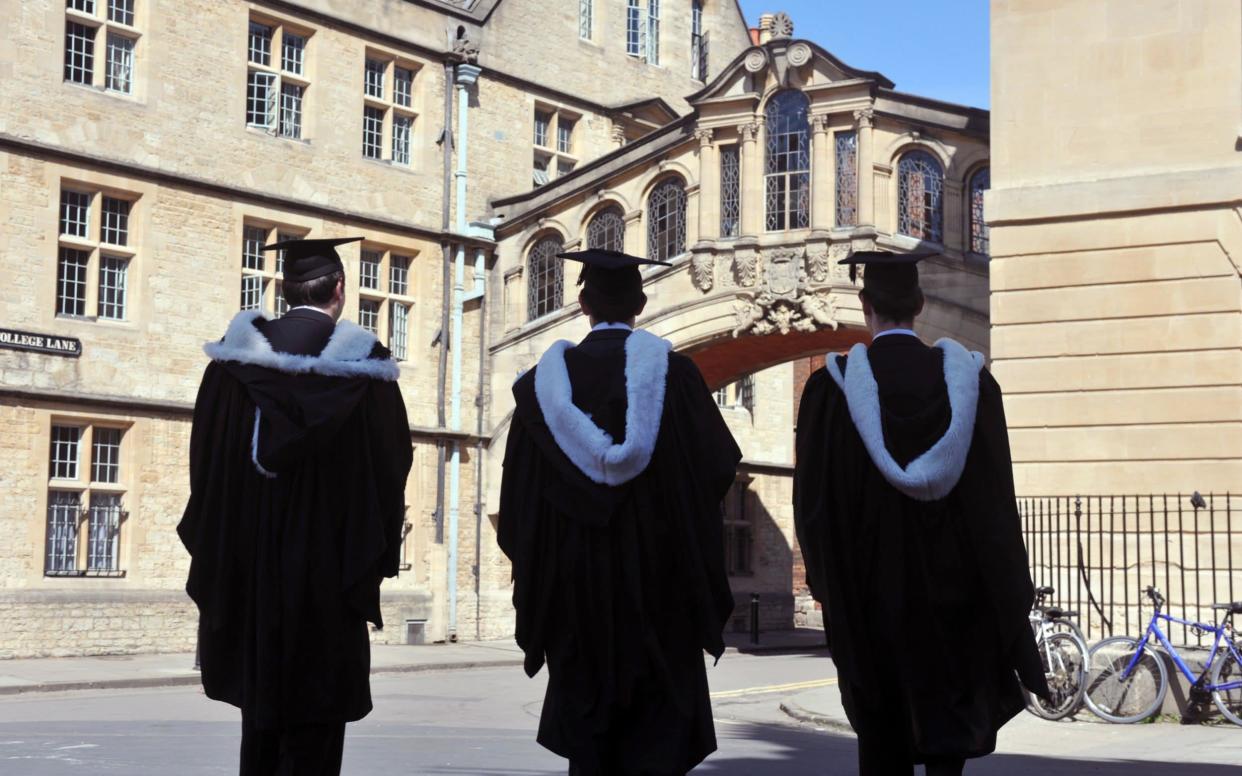Women in the top jobs less likely to be Oxbridge graduates than male colleagues, research reveals

Women in the top professions are less likely to have studied at Oxbridge than their male counterparts, research has found.
The research, published on Tuesday by the Sutton Trust, in conjunction with the Social Mobility Commission, analysed the educational backgrounds of more than 5,000 of the country's leading people in 37 categories across nine professions.
These included: politics, business, the media, Whitehall and public bodies, public servants, local government, the creative industries, the judiciary and women and sport.
However the survey, carried out in Spring 2019, also revealed what researchers described as an “unexpected” trend.
For those who do make it to the top of their chosen career paths, women’s educational paths were different to those of their male colleagues.

Across a variety of the professions examined in the report, the research revealed that women are less likely to have attended Oxbridge than their male counterparts.
Female judges are 25 percentage points less likely to have attended Oxbridge than male judges, Baronesses 21 percentage points less likely than Lords, female newspaper columnists and diplomats 17 percentage points less and female MPs 6 percentage points less likely to have attended Oxbridge.
Similarly, although local government leaders have a very low rate of Oxbridge attendance, women in these roles are still half as likely (3% vs 6%) to have attended Oxbridge than men in the same positions.
Elaine Owen, MD of WomenInBusiness.co.uk, said the results were “really positive” for women and their careers. “There are opportunities for women now that weren’t there for us when we were finishing school,” she said.
“We just had to get on with it because there was no other way and with the education we received, we would never have got into Oxbridge. Most women who are successful are typically in their 50s - because that’s how long it’s taken us. We’re just starting to see change.”
Karen Gill MBE, co-founder of Everywoman, an organisation which champions women’s career progression, added: “Whilst Oxford and Cambridge both admit relatively equal numbers of men and women it is interesting to see women flourishing in top roles without this elite educational background.
“For 20 years we have campaigned to help women from all educational backgrounds advance in their chosen careers and reach senior levels.
“Now business leaders must recognise the importance of diversity of thought, skills and experience to be relevant and competitive in today's world. It appears there is case to afford men from different educational backgrounds the same opportunities as women, getting away from the “old school tie network”.
The report entitled, Elitist Britain 2019: The educational backgrounds of Britain’s leading people, also found that the nation’s most influential people are five times more likely to have studied at a private school than the general population. Only 7% of Britons are privately educated, compared to 39% of those in top positions.
The report’s authors say that the data reveals a pipeline from fee-paying schools through Oxbridge and into top jobs.
Sir Peter Lampl, founder and executive chairman of the Sutton Trust, a charity which aims to improve social mobility, said that Britain is “an increasingly divided society”.
"Divided by politics, by class, by geography. Social mobility, the potential for those to achieve success regardless of their background, remains low. "
The report makes a number of recommendations in the report to ensure the talents of people from all backgrounds are made use of.
These include tackling financial barriers to specific industries and professions, especially by paying internships of significant length, and adopting contextual recruitment and admissions practices.

 Yahoo News
Yahoo News 
